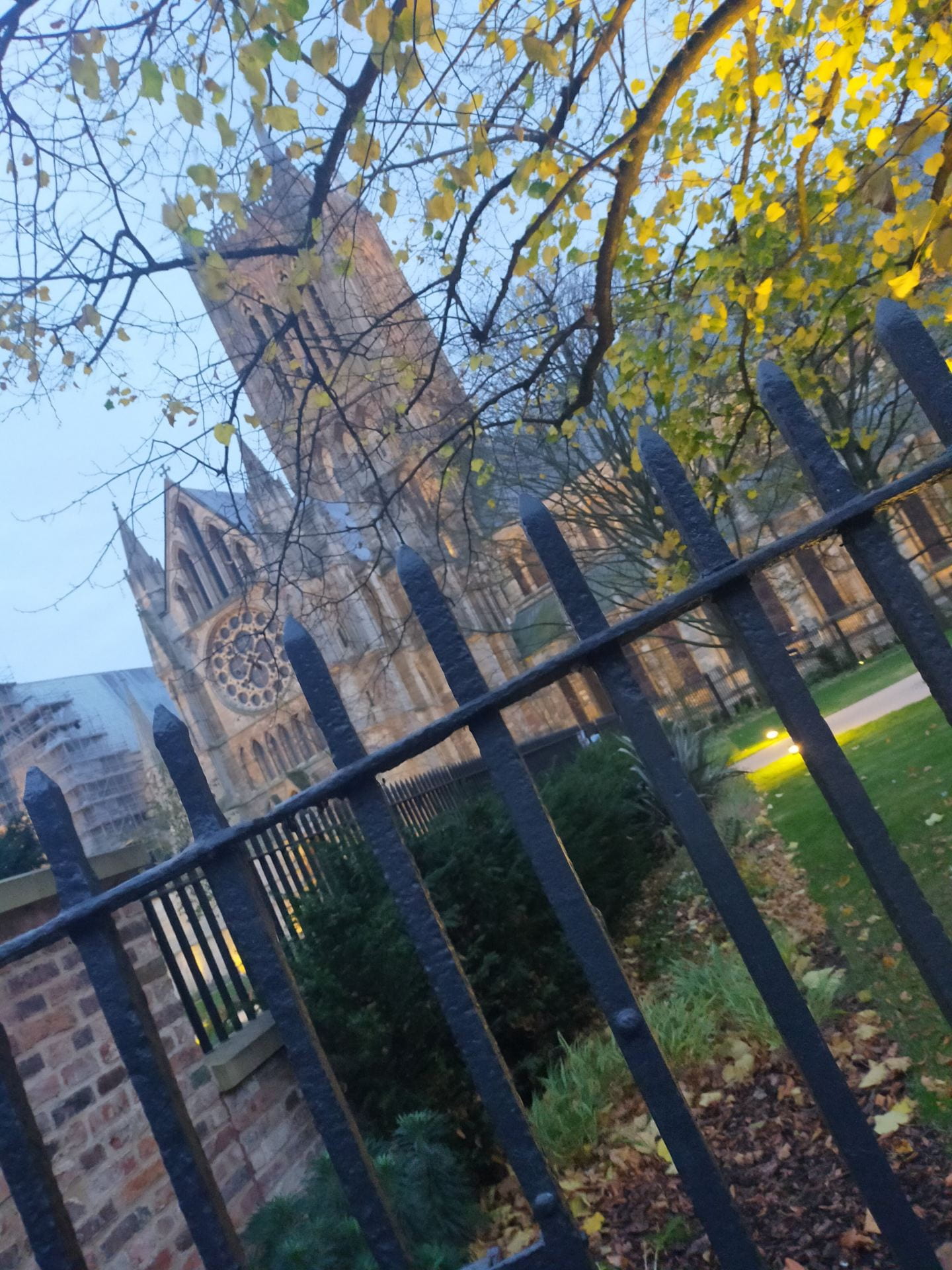Hey! I'm Emma, I'm from Sheffield and I am in my third year studying law here at UoL! I am a huge fan of all animals, a good movie marathon, and cooking all my favourite food. I'm also super lucky…

As students at the University of Lincoln we have all heard of the ‘Nicola de la Haye building’ on campus.
It is home to a variety of students studying creative degree subjects and is recognised for its unique, award-winning design features. But, do you know the story behind the building’s name?
In a time where women were scarcely part of public life and were little more than the property of their husbands, Nicola de la Haye stands out as a symbol of female empowerment and courage.
Lincoln Castle
The incredible story of Nicola de la Haye starts with our beloved Lincoln Castle…
Richard de la Haye, the father of Nicola de la Haye was a minor Lincolnshire Lord. At the time of his passing in 1169, Nicola de la Haye inherited land in both England and Normandy and the position of Hereditary Constable of Lincoln Castle. In practice, this position was filled by her two husbands in succession. However, she continued to hold the Castle after the death of her second husband in 1214.
King John regularly referred to her as “our beloved and faithful Nichola de la Haye”. This lead to her being named the Sheriff of Lincolnshire by King John in 1216, despite being in her mid-sixties and a woman.
The First Barons’ War
The First Barons’ War was the result of King John’s refusal to honour the Magna Carta despite his initial agreement in June 1215. This refusal caused many Barons to revoke their loyalty to King John and invite Prince Louis of France to invade and take the English throne.
After King John’s death in 1216, despite the huge threat of the ongoing civil war, the throne was left to his nine-year-old son, King Henry III. The well-known, celebrated knight, William Marshal, Earl of Pembroke, assumed the role of Regent for the King’s heir.
By May 1217, the majority of England had been taken by the combined French and rebel English forces.
Loyalty
Throughout this time, only Lincoln Castle remained in support of the new King Henry III. As Constable of Lincoln Castle, Nicola de la Haye continued to hold the power of Lincoln Castle despite months of sieges from the invading forces which had taken the entire city of Lincoln.
The Second Battle of Lincoln
On May 20th 1217 the famous ‘Second Battle of Lincoln’ was fought when William Marshall lead royalist forces into Lincoln to support Nicola de la Haye and Lincoln Castle.
This was the significant turning point of the First Barons’ War when the French and rebel forces were defeated and the siege on Lincoln Castle ended, causing the invading forces to retreat. This turnaround meant that Prince Louis of France would not take the English throne.
Acknowledgement and Praise
King Henry III continued to refer to Nichola as “our beloved and faithful Nichola de la Haye” in acknowledgement of the significant role she played in saving his kingdom. Royalist writers referred to her as ‘a worthy lady’ deserving of God’s protection ‘in body and soul’.
Historians have named her ‘the woman who saved England’, yet her story is one which very few know about.
Women’s History Month
Nicola de la Haye’s story is an incredible one, England as we know it today would not be the same if she did not remain brave and strong.
So, next time you walk the Uphill area of Lincoln and see Lincoln Castle and the Cathedral, imagine the incredible bravery which Nicola de la Haye fought with while she defended Lincoln Castle and the King’s name and use Nicola de la Hayes story to remember that when you struggle to see the light at the end of the tunnel, there is always hope if you believe in yourself and continue with determination and bravery.







